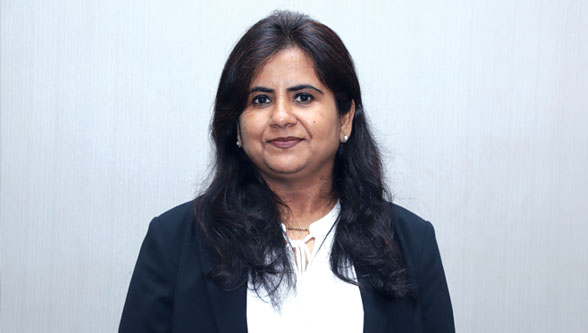Making a mark by challenging the gender bias
Q. Tell us about your role and job profile at your company.
I am responsible for leading Rockwell Automation India’s marketing strategy, planning and implementation through a team of strong professionals from varied specializations. The role includes market creation/penetration, partnership enhancements, demand generation and managing customer experience across the industries.
Q. What made you choose a career in the manufacturing/industrial automation industry?
When I became an engineering graduate in late 90s, ‘IT’ was emerging as the most sought-after stream. Even the engineers from the core streams like mechanical/ civil/ electrical were getting into IT jobs. What did not fascinate me about this trend then and fails to do even now, is the disconnect that it creates from the basic engineering principles/ applications.
On the other hand, it was getting clearer that Automation will be driving the change for manufacturing. This was primarily the outcome of the just started convergence of the Automation and Information Technologies. This was the prime driver for me to pick up Industrial Automation as my area of work. Manufacturing gives a lot of versality and allowance for engineers to apply their learnings and deliver agile business outcomes for the fast-changing market demands.
Progressive organizations have begun to recognize that the gender diversity is not a fancy item on the “to do’ list but is rather mandatory to bring in the transformational growth driven by real numbers
Q. Did you face any difficulty in coping in the industry (due to lesser women employees)? If yes, then please share anecdotes and your experiences
As an engineering professional, I was used to fewer women folks around me right from my academic years. When I started working, the site/plant jobs were immediately ruled out for the women employees, as an obvious choice. Hiring managers had a lot of bias to deal with, which was largely also due to our social and cultural upbringing. Even the most qualified women had to put in a lot on the table to break this bias and prove them as equal to men. My initial year experiences were no different.
The first site job I got was given to me only on contractual basis as the organization believed that I will change my priorities soon. I soon decided to take up more visible and result-oriented roles like product management, business leadership and commercial engineering. That eventually turned into a big opportunity for me.
With less diverse gender around, the recognition for my successes was instant and more visible. And with that came a realization that it’s not about proving equal to the men folks, it’s rather about proving that women professionals are superior, which organizations fail to recognize.
Q. In your opinion, why only few women manage to climb the seniority ladder? What are the key barriers affecting career progression of women?
I think it is not about the readiness/capabilities of the women to lead, it’s about India Inc ‘s readiness to accept the fact that diversity brings a plethora of human resource traits that allow the enterprises to outperform. The diversity in the skill sets, that are now meaningfully changing the game for the organizations, are ability of women to drive results much more cohesively, ability to handle conflicts, adapting to the change, inborn far sightedness, superior loyalty index, and ability to take risks and handle failures.
All these qualities bring a huge difference in way an organization creates and sustains success in the changing market dynamics. Instead of focusing on such huge potential, we have so far kept the focus on some intermittent cultural issues that might popup as perceived road blocks for businesses.
Today, with the changing mindset and technological advances, things are gradually taking a positive turn. Progressive organizations have begun to recognize that the gender diversity is not a fancy item on the “to do’ list but is rather mandatory to bring in the transformational growth driven by real numbers.
Q. What initiatives can we take to encourage more women to join the industry.
My perspective on this is that if we address the above inhibitions of the organizations, the rest is just about giving some tactical support system to the women folks so that they can excel in both the areas – professional and personal. Women are born multitaskers and are wired as highly competitive human beings. They will figure out a way to excel in all the realms of life.
Q. What advice would you give to women to be successful in the industry?
- Firstly, recognize your strengths and passion
- Be yourself – The game is not about proving equal to others. It is to show that you are superior in delivering results and are equipped with qualities that are just right for making businesses more agile, farsighted and productive
- Start taking credit of what you deserve
- Always be a learner and stay relevant.





